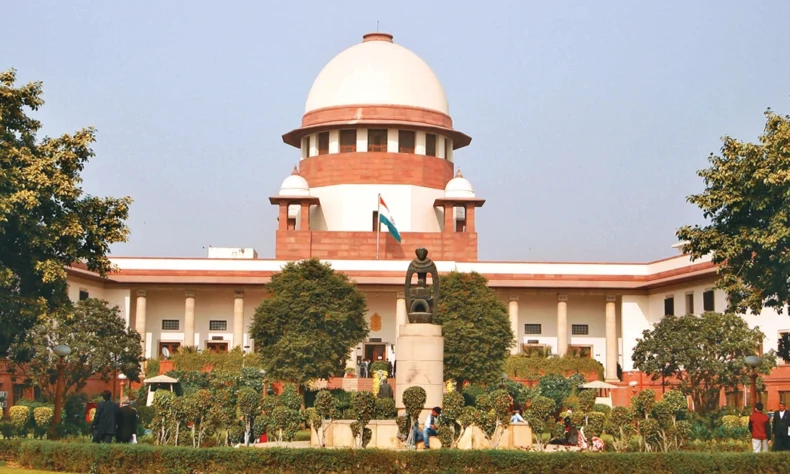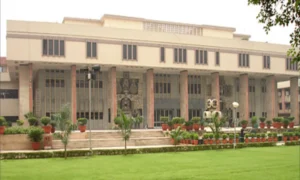
The Supreme Court has refused to appoint an arbitrator in an international commercial dispute on the grounds that Indian courts did not have jurisdiction under Section 11 of the Arbitration and Conciliation Act, 1996, in cases where the main contract specified a foreign governing law and a foreign seat of arbitration.
The Division Bench of Justice Pamidighantam Sri Narasimha and Justice Atul S Chandurkar held on Friday that the Apex Court’s precedents in Bharat Aluminium Co. v. Kaiser Aluminium Technical Services (BALCO), Mankastu Impex Pvt. Ltd. v. Airvisual Ltd., BGS SGS SOMA JV v. NHPC Ltd., and PASL Wind Solutions Pvt. Ltd. v. GE Power Conversion India Pvt. Ltd. conclusively establish that Indian courts possess no jurisdiction to appoint arbitrators in respect of arbitrations seated outside India.
The BSA and its Addendum constituted the “mother agreement,” expressly designating Benin as the juridical seat and Benin law as both the governing and curial law, it noted, adding that ancillary Sales Contracts and related High Seas Sale Agreements (HSSAs) were merely performance-facilitating instruments incapable of overriding, amending, or novating the dispute-resolution architecture conceived under the BSA.
On both doctrinal and factual planes, the arbitration clause contained in the BSA prevailed as the controlling covenant, it ruled.
The Apex Court passed the order on a petition filed by a domestic steel manufacturer, seeking appointment of a sole arbitrator after disputes emerged regarding supply shortfalls and payment obligations under the BSA.
Following the execution of a Collaboration Agreement and the primary BSA governing long-term supply of cottonseed products, the parties executed an Addendum, which removed the petitioner’s exclusivity rights, permitting the respondent to transact with third parties.
Alleging contractual breach, the petitioner issued termination notices. The respondent invoked arbitration under Benin law, pursuant to which a Beninese court appointed the sole arbitrator.
Instead of participating in the foreign-seated arbitration, the petitioner instituted an anti-arbitration injunction suit before the Delhi High Court, seeking to restrain the continuation of the Benin proceedings.
While the Section 11 petition remained pending, the international commercial arbitration concluded, and a final award was rendered. Subsequently, the Delhi High Court dismissed the injunction suit, rejecting the very grounds now asserted before the Supreme Court.
After perusing the contractual documents, the top court of the country held that Article 11 of the BSA read with Article 5 of the Addendum furnished unambiguous evidence of the parties’ choice of seat and curial law.
The existence of discrete arbitration clauses in Sales Contracts and HSSAs did not dilute the BSA’s primacy, particularly because the contracts operated independently and did not cumulatively establish any intention to relocate the juridical seat, it noted.
The Bench reaffirmed that Part I of the Arbitration Act stands excluded in the case of foreign-seated arbitrations unless specifically incorporated by party agreement, consistent with the BALCO doctrine and subsequent jurisprudential developments. The invocation of Section 11(6) to seek judicial constitution of a tribunal was, therefore, legally untenable.
It further endorsed the Delhi High Court’s findings that the petitioner was stopped from reasserting arguments already rejected in proceedings concerning the anti-arbitration injunction.
Addressing the petitioner’s invocation of the Group of Companies Doctrine, the Bench cautioned that the principle was not a blanket mechanism for sweeping affiliated entities into arbitral proceedings. The doctrine required demonstrated intention to bind non-signatory entities, which was absent in the present case.
The top court of the country observed that the petitioner’s attempt to invoke Indian judicial power was inconsistent with party autonomy, statutory design, and established arbitral jurisprudence.
While dismissing the petition under Section 11(6) read with Section 11(12)(a), the Apex Court held that the BSA governed the contractual relationship, that Benin was the juridical seat, and that the law of Benin applied as both governing and procedural law.
📰 Crime Today News is proudly sponsored by DRYFRUIT & CO – A Brand by eFabby Global LLC
Design & Developed by Yes Mom Hosting






